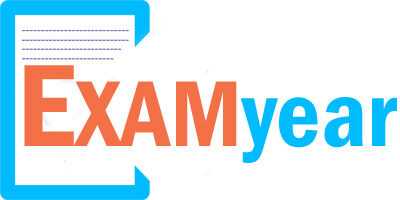Question Bank on General English for all Competitive Exam
Interested users can download the Question Bank on General English from the links enclosed below. Download the Last 5 Years Question Bank on General English Solved along with the Answers of each question.

This Question Bank on General English may vary from the Actual paper. Use the Question Bank on General English as a reference for the exam preparation. Check the Question Bank on General English from this page.
At the bottom of this page, you will find ‘Click here links’ for downloading the Question Bank on General English. Click on the required link & download your related Question Bank on General English to make as a reference for your scheduled preparation.
General English Question Bank
Directions: Convert the given sentences as directed in the brackets:
1. Seeing the policeman, the thief ran away. (to compound)
(a) The thief ran away seeing the policeman
(b) The thief saw the policeman and ran away
(c) The thief ran seeing the policeman
(d) The thief runs seeing the policeman
2. Taking his bat, he went to the ground. (to compound)
(a) He took his bat and went to the ground
(b) He takes his bat and went to the ground
(c) He took his bat to the ground
(d) he takes his bat to the ground
3. Inspite of his hard work he did not succeed. (to compound)
(a) He work hard yet he did not succeed
(b) He worked hard yet he did not succeed
(c) He works hard and did not succeed
(d) He will work hard to succeed
4. He declared his being elected. (to complex)
(a) He declared that he had been elected
(b) He declares that he have been elected
(c) He declared to be elected
(d) He declared to have been elected
5. We reached a pleasant place. (to complex)
(a) We reach a place where it was pleasant
(b) We reaches a place where it is pleasant
(c) We reached a place where it was pleasant
(d) We were reaching a pleasant place
6. He found the shop closed and this was to his dismay. (to simple)
(a) To his dismay he found the shop closed
(b) The shop was closed for his dismay
(c) His dismay was the shop was closed
(d) The closed shop was his dismay
7. Only adults can cast a vote. (to complex)
(a) Vote if you are adult
(b) Only adults can vote
(c) If you are not an adult you cannot cast a vote
(d) Votes can be cast by adults
8. The man was guilty and therefore the judge punished him. (to simple)
(a) The judge punished the man for guilt
(b) The judge punished him because he was found guilty
(c) The man was found to be guilty so the judge punished him
(d) The man was punished by the judge
9. Walk fast or else you will miss the train. (to simple)
(a) If you don’t walk fast you will miss the train
(b) If you don’t walks fast you will miss the train
(c) Walk fast to not miss the train
(d) Walk faster or you will miss the train
10. The audience clapped when the singer sang. (to compound)
(a) The singer sings for the audience
(b) The audience clapped when the singer sings
(c) The singer sang and the audience clapped
(d) The singer sings to the audience claps
Directions: Synthesise the sentences as directed in the brackets.
11. We don’t prepare fast pitches. We cannot prepare real fast bowlers. (use ‘if’)
(a) If we don’t prepare fast pitches, we cannot prepare real fast bowlers
(b) We don’t prepare fast pitches, if we cannot prepare real fast bowlers
(c) If we don’t prepare fast pitches if we cannot prepare fast bowlers
(d) We cannot prepare fast bowlers if we cannot prepare fast pitches
12. The woman is in a green saree. She is the manager of the team. (use a relative pronoun)
(a) The woman manager is in green saree
(b) The woman who is in green saree is the manager of the team
(c) The manager who is in green saree
(d) The woman is the manager who is in green saree
13. He is very weak. He could not go up the stairs. (use ‘too’, ‘to’)
(a) Too weak, he cannot go up to the stairs
(b) He is to weak, to go up too the stairs
(c) He is too weak to go up the stairs
(d) Too go up the stairs he is to weak
14. He came late. He was sent back. (use ‘therefore’)
(a) He was sent back therefore he came late
(b) Therefore he came late and was sent back
(c) He came late and was sent back therefore
(d) He came late, therefore he was sent back
15. I cannot read his note-book. His hand writing is poor. (use ‘ for’)
(a) I cannot read his note-book for his hand writing is poor
(b) For his poor hand writing I cannot read his note-book
(c) His note-book is poor for his hand writing
(d) I cannot read his poor writing for his note-book
16. The bus arrived. The people started moving into it. (absolute phrase)
(a) The bus having arrived, the people started moving into it
(b) The bus arriving, the people move into it
(c) The bus arrives, the people started moving in it
(d) The bus arrived, the people starting to move into it
17. He attended the office yesterday. He was punctual. (adverb or adverbial phrase)
(a) He attends the office punctually
(b) He attend the office punctually
(c) He attended the office with punctuality
(d) He attended the office yesterday punctually
18. The child tried to get at the basket of fruit. His efforts did not succeed. (adverb or adverbial phrase)
(a) The child tried to get at the basket of fruit unsuccessfully
(b) The child tries to successfully get the basket of fruit
(c) The child fail to success to get the basket of fruit
(d) To get the basket of fruit was not successful by the child
19. He is slow. He is sure. (adversative conjunction)
(a) He is slow because he is sure
(b) He is sure and slow
(c) He is sure still slow
(d) He is slow but he is sure
20. He was angry. He did not say anything. (adversative conjunction)
(a) He was angry still, he did not say anything
(b) He did not say, anything yet he was angry
(c) He did not say anything, however he was angry
(d) He was angry; however, he did not say anything
More Question Set on General English from Various Exam
| Model Question | Old Question |
| Sample Papers | Mock Test |
| Practice Set | Question Bank |
| Important Questions | Test Papers |
| Typical Questions | Selected Questions |
Directions: Choose the correct meaning of the following idioms and phrases
21. beggar description
(a) ask for a description of someone or something
(b) describe a beggar
(c) cannot be described in words
(d) none of the above
22. alive and kicking
(a) in a healthy condition
(b) trying to win a fight at all costs
(c) a baby lying in a crib
(d) very tired
23. to hit the ceiling
(a) to jump very high
(b) throw a stone at the ceiling
(c) to break the roof
(d) to lose one’s temper
24. give up the ghost
(a) no longer believes in ghost
(b) to die
(c) to be upset by something
(d) not having any fear
25. go haywire
(a) get out of control
(b) a rope-walker
(c) collecting hay
(d) make wire with hay
26. on a par
(a) agree with someone
(b) not up to standard
(c) of the same standard
(d) what usually happens
27. right and left
(a) ready to act
(b) parade of soldiers
(c) together
(d) in all direction
28. a capital crime
(a) a crime committed at the capital
(b) a crime not worth mentioning
(c) a crime punishable by death
(d) death sentence
29. a close – fisted man
(a) a very angry man
(b) ready to fight
(c) a miser
(d) unwilling to shake hands
30. out of sorts
(a) useless
(b) to be angry
(c) bits and pieces
(d) unwell
Directions: Choose the correct Synonym for the following words.
31. Serene
(a) Calm
(b) Obscure
(c) Shy
(d) Zeal
32. Abridge
(a) Decent
(b) Shorten
(c) Scene
(d) Sight
33. Bashful
(a) Delay
(b) Discord
(c) Shy
(d) Smile
34. Liberal
(a) Innocent
(b) Smart
(c) Lesson
(d) Generous
35. Diligent
(a) Industrious
(b) Benefactor
(c) Merry
(d) Lesson
36. Handy
(a) Useful
(b) Changeable
(c) Regular
(d) Bulky
37. Judicious
(a) Permanent
(b) Protect
(c) Prudent
(d) Permit
38. Latent
(a) Hidden
(b) Legal
(c) Observe
(d) Urgent
39. Ludicrous
(a) Sensual
(b) Stray
(c) Laughable
(d) Palpable
40. Repress
(a) Stifle
(b) Sign
(c) Suggest
(d) Sublime
Directions: Choose the correct word-substitute from the given choices
41. Teetotaller
(a) one who never touches alcoholic liquor
(b) one who wanders without settled home
(c) one who flees to another country
(d) one given to pleasures
42. Acoustic
(a) the science of space
(b) the science of aviation
(c) the science of sound
(d) the science of antiquities
43. Coup detat
(a) combination of States or political parties
(b) composition intended to ridicule a person of government
(c) violent or illegal change in government
(d) a written statement given on oath
44. Espionage
(a) an engagement to marry
(b) practice of spying or using spies
(c) a newly enlisted soldier
(d) a short sword fixed on the end of a fire-arm
45. Hangar
(a) arranged in systematic form
(b) belonging to the same time
(c) selective, from diverse sources
(d) large building for storing and maintaining aircraft
46. Creche
(a) a public nursery where babies are cared for while their parents are at work
(b) a place where milk is kept and butter is made
(c) a place where goods are stored
(d) a box or cage to store candles, oil, soap etc
47. Arc
(a) a piece of written composition
(b) a ship
(c) a part of a circle
(d) a refusal
48. Curator
(a) an official in-charge of a museum or art gallery
(b) one who works in a coal mine
(c) one who studies a dictionary
(d) one who studies the elements of the weather
49. Phonetics
(a) the study of pottery
(b) the science of metals
(c) the science of hydrolics
(d) the science of speech, sounds and their production
50. Eulogy
(a) a speech or writing in praise
(b) language which is defective
(c) the concluding part of a written work
(d) an exaggerated statement

